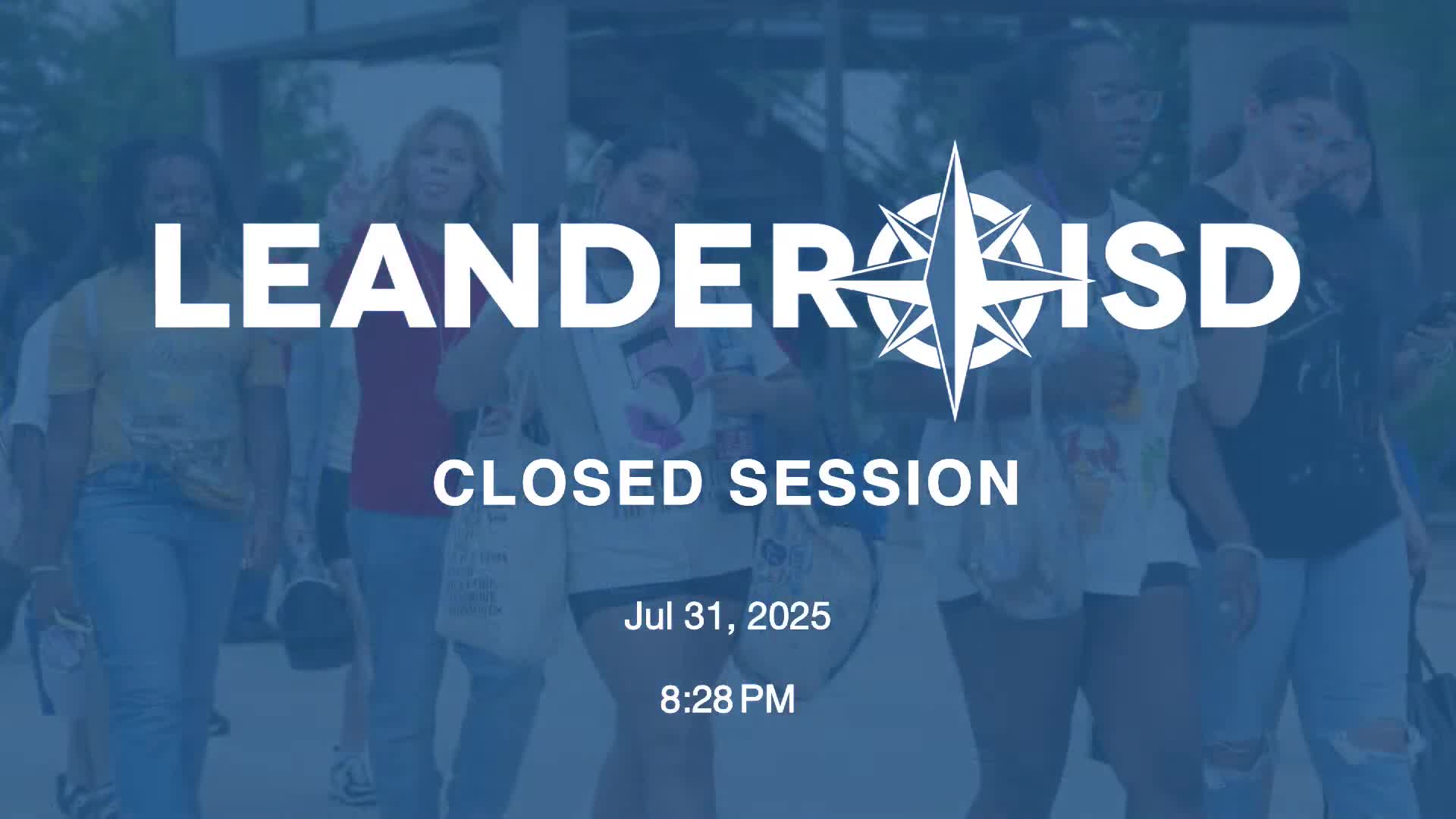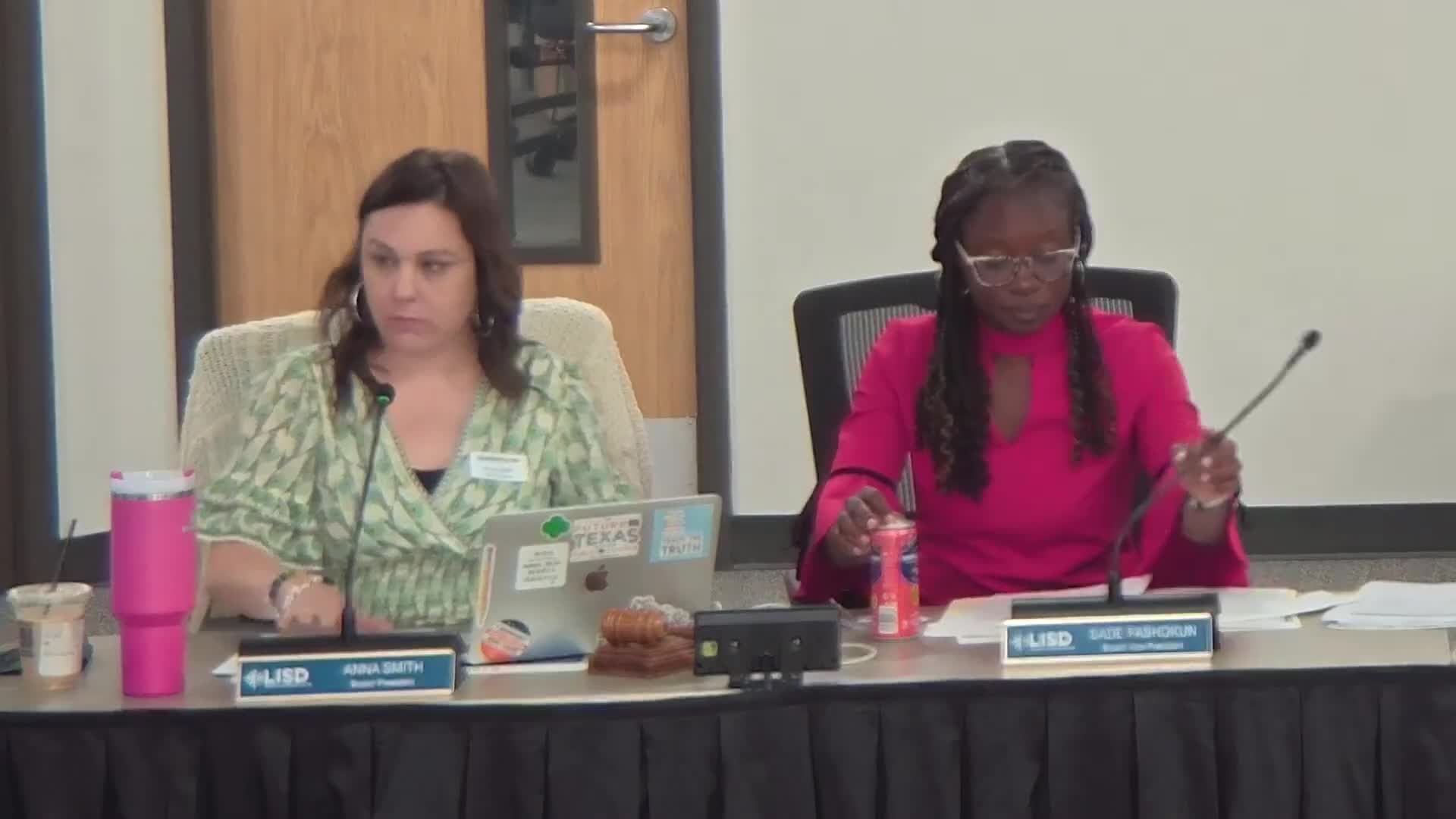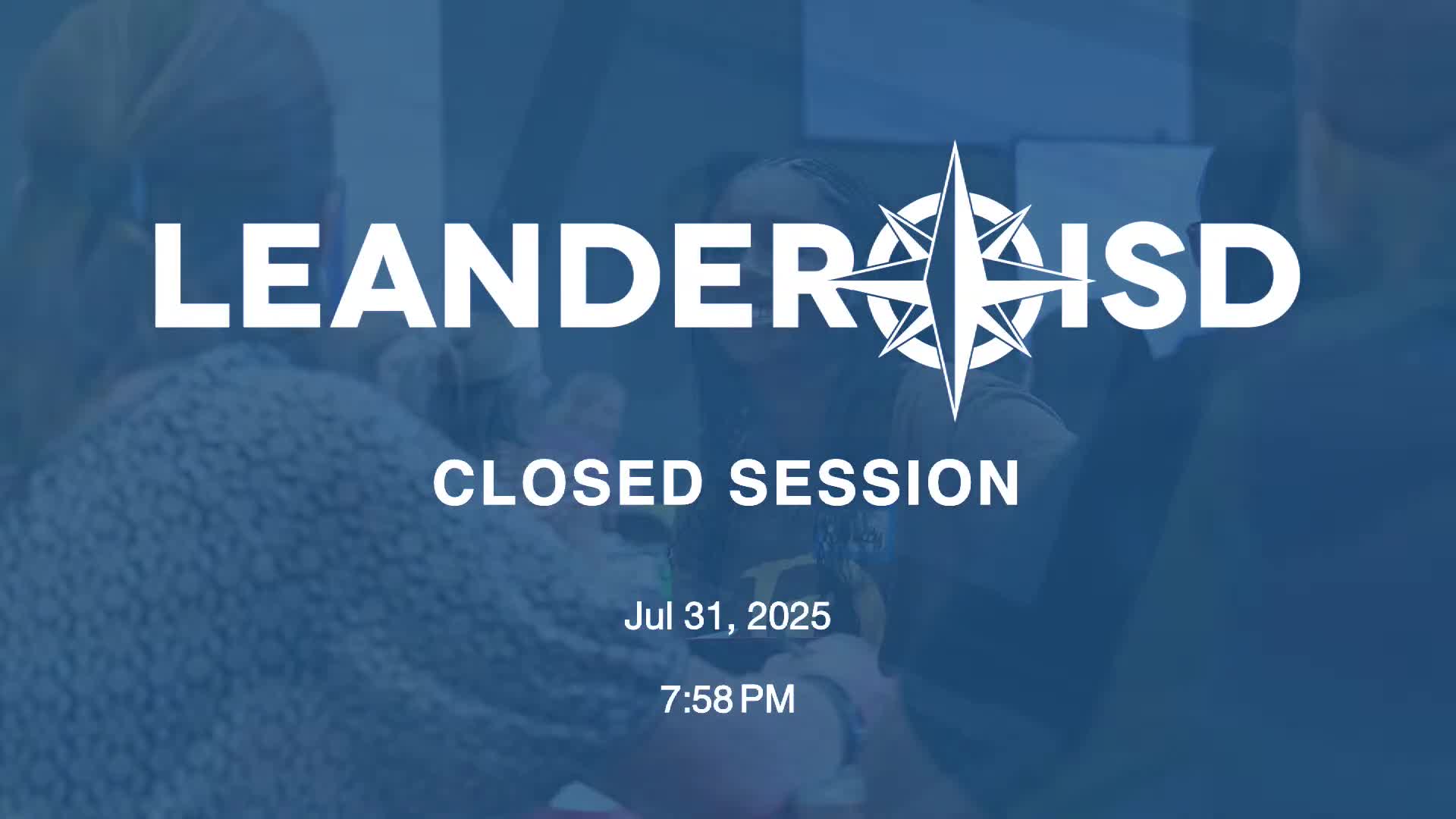Article not found
This article is no longer available. But don't worry—we've gathered other articles that discuss the same topic.

Leander ISD adopts 2025–26 student code of conduct; trustees, staff outline new state-driven changes including bell-to-bell personal device limits

Parents, students and residents urge Leander ISD board to pause school-closure plans, cite equity and data concerns

